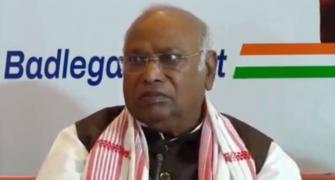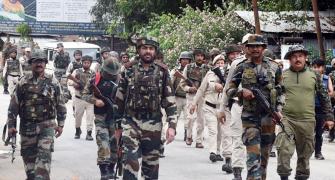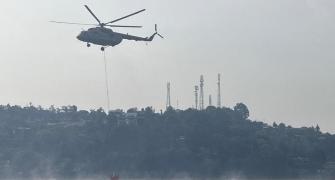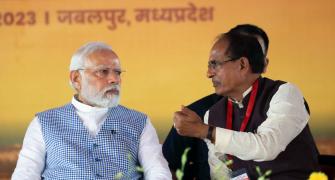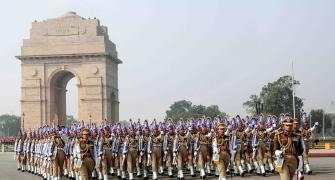Buckling under pressure from hardline parties and its own allies, Pakistan government has sent to the cold storage a bill seeking amendments to controversial Islamic laws, including one requiring a rape victim to produce four male witnesses to prove the crime.
Amidst irreconcilable differences between moderate parties and hardline Muttahida Majlis-e Amal alliance, the Shaukat Aziz government abruptly prorogued both Houses of Parliament on Monday to ward off a showdown on the Protection of Women Bill.
The Bill was introduced with a backing from President Pervez Musharraf to ease 'repressive' laws against women.
Prime Minister Aziz and Law and Justice Minister Mohammad Wasi Zafar said the National Assembly could be called again towards the end of September or early next month to take up the bill.
However, political parties believe it was unlikely that the bill to amend the Hudood laws, brought in by former military ruler Zia-ul Haq, would be taken up before the Assembly is dissolved for elections next year.
The Hudood laws, considered the most oppressive specially from the women's point of view, resulted in a concerted campaign against the ordinance from human rights groups in Pakistan and abroad.
Musharraf, who had a liberal image, promised to revoke the laws after staging a military coup in 1999, and recently prodded the Aziz government to amend certain sections of the Hudood Ordinance on the ground that it was not in line with the Islamic injunctions.
The government initially ignored MMA's protests and went ahead with bringing up the Women Protection Bill as it was backed by former prime minister Benazir Bhutto's Pakistan Peoples Party.
But the government became less enthusiastic after the resentment generated by the killing of Baloch nationalist leader Nawab Akbar Bugti. The MMA, which shared power with the ruling coalition in Balochistan, threatened to quit the provincial government and Parliament if the federal government went ahead with the passage of the bill.
While the government quickly reached an understanding with the MMA, the key ally in the ruling coalition Muttahida Quami Movement, headed by Altaf Hussain, opposed the changes to the Bill and threatened to quit.
Caught in a quandary, the government chose to put the Bill in the cold storage.
Some political parties also claimed that the intention of the government was to break the emerging unity between the MMA and the mainstream Alliance for Restoration of Democracy to oppose Musharraf.
While the MMA opposed the bill along with Pakistan Muslim League-N, headed by former prime minister Nawaz Sharif, Bhutto's PPP supported it. Both MMA and PPP had heated exchanges on the Bill.


